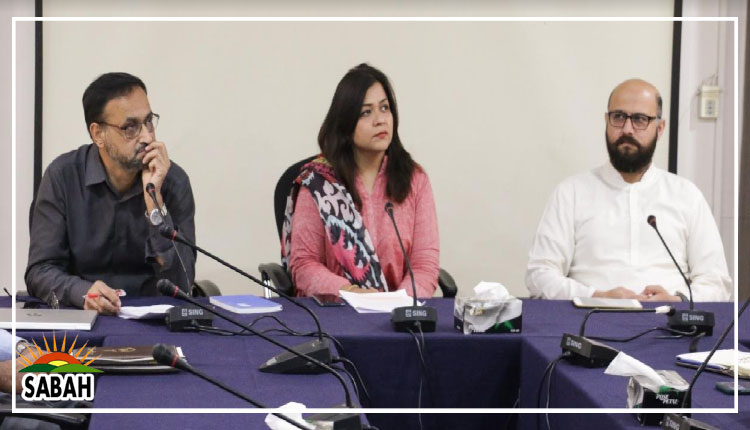Govts, scientists need to address rising climate risks, say experts at SDPI seminar
ISLAMABAD, April 06 (SABAH): South Asia is the most vulnerable region in the face of climate change and thus, collective efforts are the need of the hour to deal with different threats posed by changing weather patterns and increasing risks of natural calamities. The climate change experts said this while sharing their views at a hybrid seminar ‘Climate Change Impacts, Adaptation and Vulnerability: IPCC Working-II Report 2022 lessons and way forward for South Asia’ organized by Sustainable Development Policy Institute (SDPI).
Senior Economist and Food Systems Specialist, Livelihoods, ICIMOD, Nepal, Dr. Abid Hussain, asserted that almost all the findings of the report are very relevant to the South Asia region. He was of the view that environmental sustainability is a cross cutting theme for all types of sustainability. Referring to the IPCC report, he said that 54 % of Pakistan consists of mountainous areas. Hence, inclusion of the mountains ecosystem in the report is of high importance for Pakistan. Besides, gender centric issues are of specific mention in the report, he added.
Climate Scientist Dr. Fahad Saeed highlighted that the IPCC report enforces the risk for the South Asia as one of the hotspots. The report shows that the water has been the most stressed resource which the climate change has ensued. Changes in climate has already impacted the lives of the people already living on higher mountains, and mangroves in the coastal areas are also being depleted. Besides, Climate Change has triggered heatwaves in urban areas and has been impacting food viability, and increasing incidence of diseases, such as dengue and malaria.
Dr. Abid Qaiyum Suleri, Executive Director, SDPI, earlier emphasized that the governments and scientists need to dwell on the magnitude of the problem presented by the IPCC report. South Asia was first time declared as the most vulnerable to the climate change and with impacts so glaring on all aspects of life as this report has signified, he added.
Director, Climate Action Network South Asia, Sanjay Vashisht, viewed that the IPCC report says that the climate change has already done substantial damages. Now is the era of adaptation and loss and damages control, where 50-75% of the global population could be exposed to periods of life-threatening climatic conditions. He highlighted that the IPCC report says that by 2030 the number of people living below poverty line will be increased multi-fold due to the climate change.
Ms. Aisha Khan, Chief Executive, Civil Society Coalition for Climate Change, Pakistan, highlighted that the report compressively covers all the forthcoming impacts of the climate change and the needs for adaptation. She suggested that we need to create a synergy among the mitigation and adaptation plans and work as a partner in face of the climate change.
Dr. Imran Khalid, Director, WWF, Pakistan suggested that the cross-cutting themes for the region like the air pollution, and water should be dealt with on priority. Dr. Hina Aslam, Research Fellow, SDPI, informed the participants that energy transition lies at the center of the climate change adaptation. Hydropower generation and cooling water demands have decreased, which critically analyses the impacts of climate change on the energy. Kashif Majeed Salik, Associate Research Fellow, SDPI, earlier highlighted different aspects of IPCC report.












